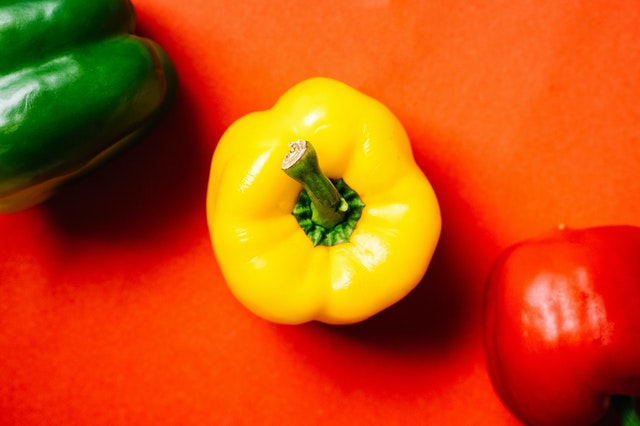As the country continues to grapple with the COVID-19 pandemic, we are all taking a closer look at ways we can stay healthy. In addition to CDC guidelines, including limited group gatherings, mask wearing and frequent hand washing, it’s vital to support your immune system with nutrient-rich foods. Here are a few foods to keep in mind when meal planning:
Sweet Potato – Vitamin A
This sweet and savory root vegetable provides a healthy dose of vitamin A. In fact, the skin from one sweet potato contains more than 150% of the standard daily recommended requirement of vitamin A. In addition to supporting your immune system, vitamin A can help maintain healthy eyes. Try baking sweet potato fries with the skin on, seasoning with a dash of sea salt, garlic powder, pepper, and paprika.
Red Pepper – Vitamin C
A raw red bell pepper is an incredible source of vitamin C with over 100% of the standard daily recommended requirement in just a half cup. As many know, vitamin C is an essential nutrient in maintaining a functioning immune system. To absorb the optimal amount of vitamin C from a single red bell pepper, make sure to pick a fresh, firm pepper with a bright green stem at the grocery store and eat it within the first few days of purchasing. Eat it raw by adding it chopped to a salad packed with savory ingredients like chia seeds, red onion, homemade croutons, carrots, and a low sodium dressing.
Oysters – Zinc
Oysters aren’t just for seafood platters at opulent restaurants. Add oysters to your grocery list once in a while for a special treat that contains a high concentration of zinc in a single serving – in fact, in just 3 ounces of oysters, prepared by breading and frying, contains 673% of your daily value of zinc.
Sunflower Seeds – Vitamin E
Vitamin E is especially relevant as we are learning more about the novel coronavirus. This vitamin not only boosts your immune system, but it also helps widen blood vessels to help prevent blood clots. In one ounce of dry roasted sunflower seeds, you can get 50% of your daily value of vitamin E. To add some vitamin E to your diet, think seeds, nuts and vegetable oils. An easy way to integrate this vitamin into your diet is by adding dry roasted sesame seeds to a salad with red wine vinegar and oil dressing, mixed greens, pomegranate seeds and dried cranberries.
As you develop a healthier diet to boost your immune system, remember to exercise, get a good nights’ sleep, manage your stress and follow COVID-19 guidelines.
Dr. Barbara Edwards, a Princeton M.D. internist practices at Penn Medicine Princeton Health in the Penn Medicine Princeton Medical Center and also serves as Medical Director of the Bristol-Myers Squibb Community Health Center.


